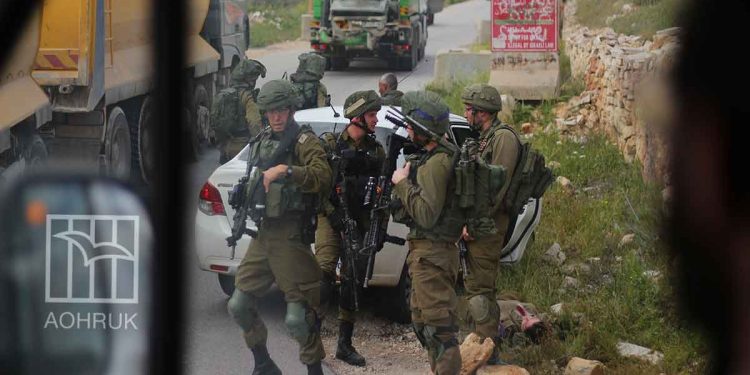On Friday, the city of Tulkarm, in the north of the occupied West Bank, witnessed an unprecedented wave of arrests carried out by the Israeli army, detaining more than a thousand Palestinians in a single day. This took place under a tightened military siege that began yesterday, involving raids on homes, shops and cafés, the destruction of their contents, and widespread intimidation of children and women.
Tulkarm Governor Abdullah Kamil affirmed that what is happening is a “large-scale and systematic aggression” aimed at breaking the will of the population and undermining their resilience, warning of the grave humanitarian consequences of these measures.
The arrests were accompanied by the closure of the city’s iron gates and a ban on vehicle movement, in addition to forcing dozens of detainees to walk in long lines towards military checkpoints.
Occupation forces also seized surveillance camera recordings and destroyed private property, in a scene reflecting a policy of collective punishment prohibited under international law, particularly the Fourth Geneva Convention, which stipulates the protection of civilians under occupation.
These arbitrary mass arrests, together with practices of siege and closure, constitute blatant breaches of international humanitarian law, which prohibits the use of civilians as a tool of pressure or targeting them collectively. The storming of homes and destruction of private property without imperative military necessity also represents a direct violation of the principles of proportionality and distinction in armed conflict.
These developments come in the broader context of escalating Israeli operations in the West Bank since the beginning of the year, with occupation forces continuing large-scale military campaigns paralleling the ongoing war of extermination in the Gaza Strip. According to Palestinian statistics, these operations have resulted in the killing of more than 1,020 Palestinians in the West Bank, the injury of around 7,000, and the arrest of over 19,000 people under conditions that raise serious concerns of torture and ill-treatment.
The events in Tulkarm reveal a systematic pattern of violations that contravene the most basic humanitarian and legal norms, indicating a rise in collective punishment policies against Palestinians.
The absence of international accountability for these crimes remains a primary reason for their continuation and recurrence, turning the West Bank into an open arena for violations, without deterrence and without effective protection for civilians.




























